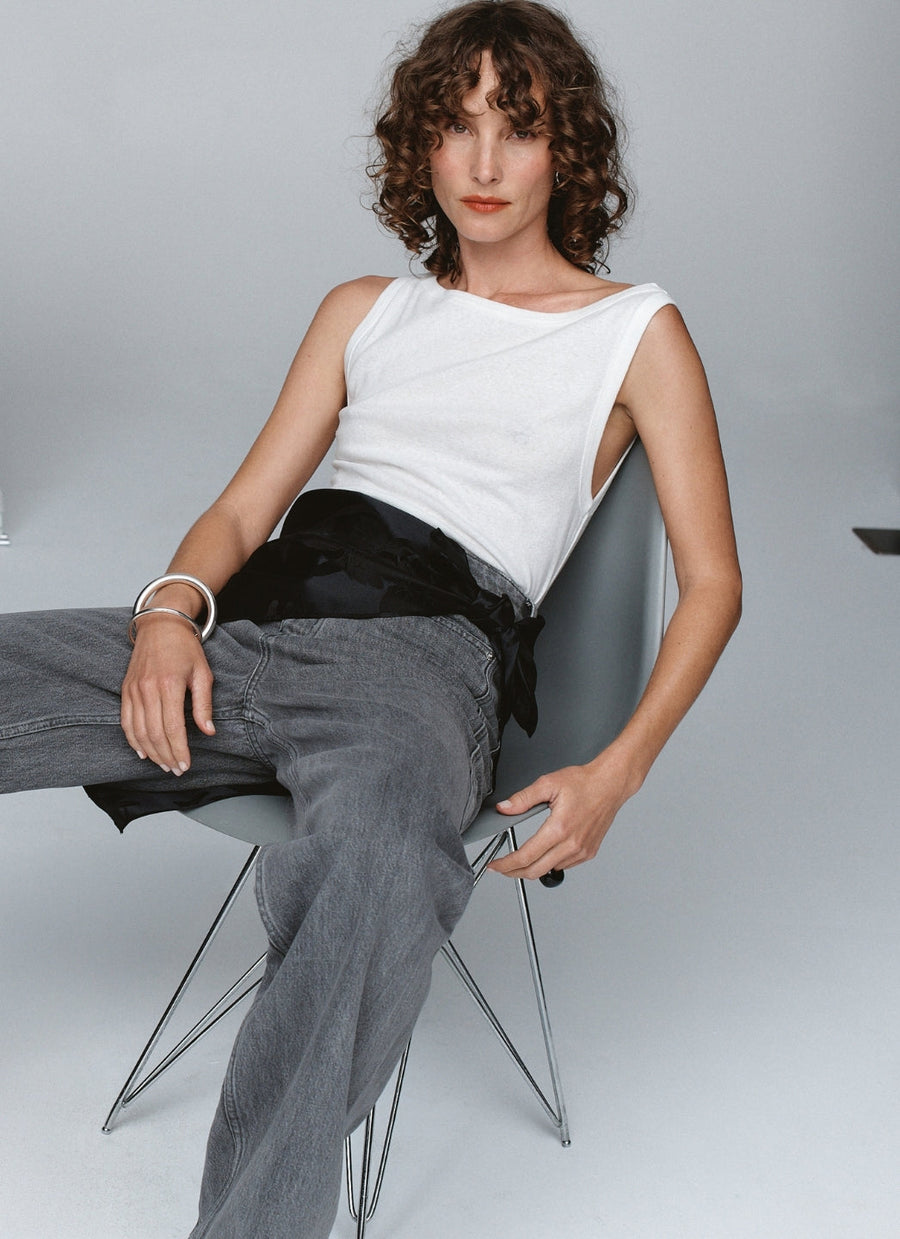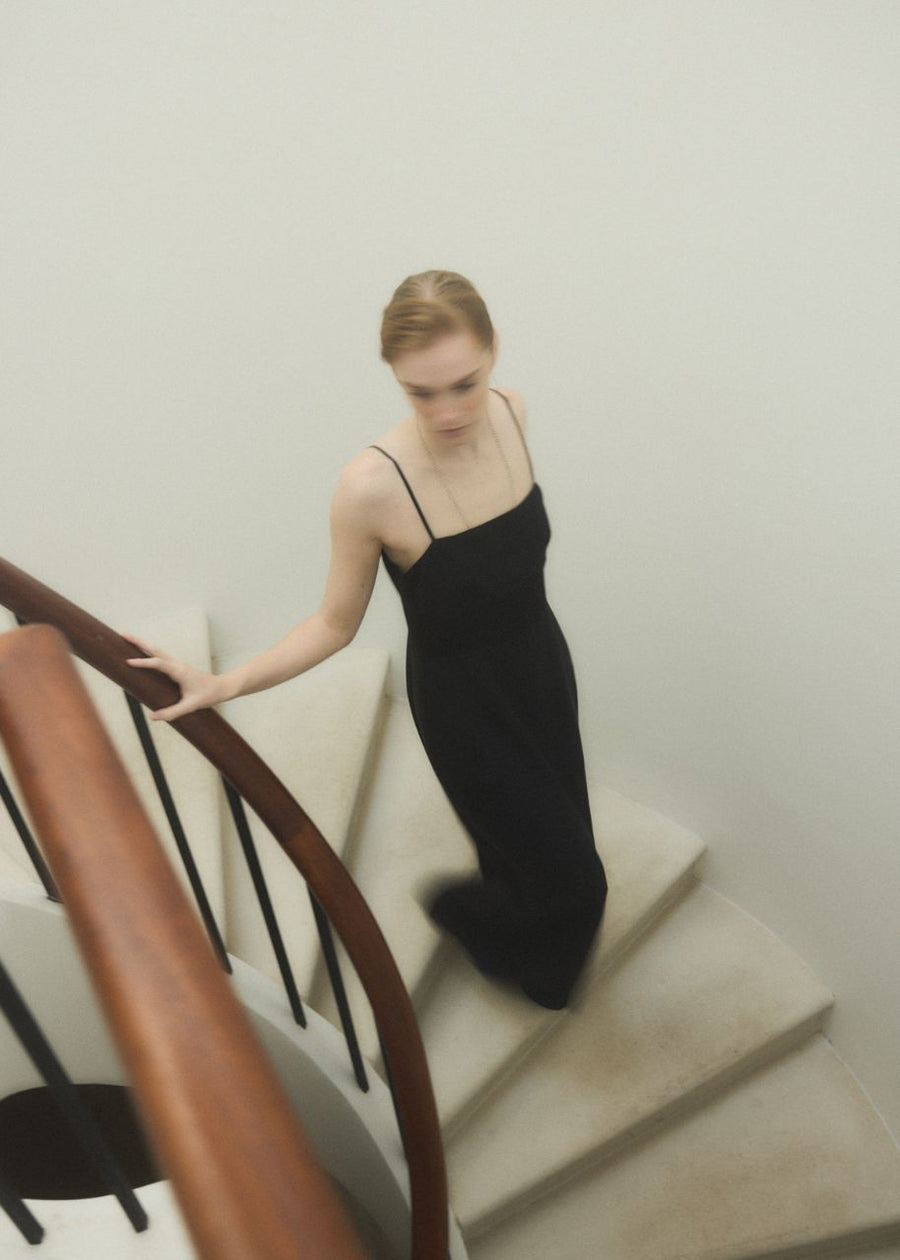
Please share a little bit about yourself - including your background, where you were raised, noting some of the defining aspects that have contributed to the environmentally conscious woman you are today.

|
"Fashion is important. It has power. It can make us feel amazing in a meeting, on a date, or comfort us when we are stuck at home for 100+ days in a row. My hope is that as the new technologies and options gain traction, the old and unsustainable ways of producing become extinct" |
You have incredible experience within the fashion industry, from working with cult Australian brands to your own label through to working with Roland Mouret. Can you share more around your career path to date and why you chose to wrap up your sustainability-focused, eponymous label in 2018?
As a palette cleanse after closing the label, I jumped over to London to see what the top of the fashion food chain looked like. Working as the Sustainability Manager at Roland Mouret was incredible. Post London, and from having my own sustainability-focused label, I felt I had enough experience to offer brands who needed assistance in this area advice - and the consulting started quite naturally from there. Brands that offer more sustainable options are so important, and by helping multiple brands do this at once, I am happily instigating more change that I would have been able to just with my own label.

What are three actions everyone can take to make their fashion consumption more ethical and sustainable?
-
Will you wear it 30 times? Is the quality good enough to last 30 wears?
-
Consider what will happen with it at the end of its life. Natural materials will break down and not leave any synthetic microfibres in the environment. For anything polyester - is there a more natural option? Because polyester is made from crude oil, which is first mined (bad for the environment), and then doesn’t break down (bad for the environment).
-
Is it multipurpose? The most sustainable options are ones you can use for various things, or multiple occasions. In parallel to point one, the more you will wear it, the better.
There is a lot of greenwashing within the fashion industry right now. What should consumers look out for when deciding which brands to buy from?
Firstly, it’s almost impossible to avoid. I see greenwashing almost daily. My advice would be to look past the fluff. Look for descriptions of what they are doing in the space, and question umbrella words such as ‘eco-conscious’. If they are saying that they are eco-conscious, what does that mean? What environmental actions have they taken and are they looking to take in the future? We really need policy around these terms, but until then, we, as individuals, need to remain sceptical and do our own research. In this space I have the motto of ‘guilty until proven innocent’, which sounds very morbid, but it’s a method that works for me. It helps me dig deeper before I make a purchase decision.
The other thing to remember is fast fashion can never be sustainable - no matter what they tell you. Because producing on that scale cannot be sustained when nature's resources are finite. Think about the energy needed to sew their billions of items each year, the millions of items that end up in landfills or shipped off to developing countries. The social, cultural and ethical impacts of their operations can’t be tangibly measured but if you need convincing please watch the documentary ‘The True Cost’. It's a life changer that shows us how the amount and pace of human consumption is the problem, more than anything else. And fast-fashion is aiding that problem.

What do you consider when adding a new piece to your wardrobe?
I firstly like to question myself and my own intentions. None of us like to be swarmed with clothes at home we don’t wear, so I take my purchasing decisions quite seriously. The problem with how I used to shop was thinking of fashion items as disposable, like food for example. I try to think of my clothing purchases as long term investments now, non-consumables. When I started thinking this way, the misconception that sustainable clothes are more expensive dissipated. Quality products should cost more. And now my wardrobe is full of quality items I love that don’t give me any guilt. I also make sure that the item I am considering purchasing is going to fill a gap. For example, I wanted (not really needed, but know I will wear them every day) bike shorts, and the organic knitted rib Marle ones are perfect- I am wearing them right now actually!
 |
 |
What are your personal favourite fibres to wear and what are the main benefits?
What is your hope for the future of the fashion industry?
QUICK FIRE QUESTIONS
Texture or colour?Both.
Summer or winter?Summer.
Most treasured accessory?Currently a locket I found in storage that was gifted to me from my bestie when I was 16.
Currently reading…The Ringing Cedars. Vladimir Merge.
Currently listening to…Lous and the Yakuza.
|
Celeste wears the Hillary Shirt, Luna Singlet, Rico Short, Oma Hat and William Dress. Photographed by Anne Peeters.







